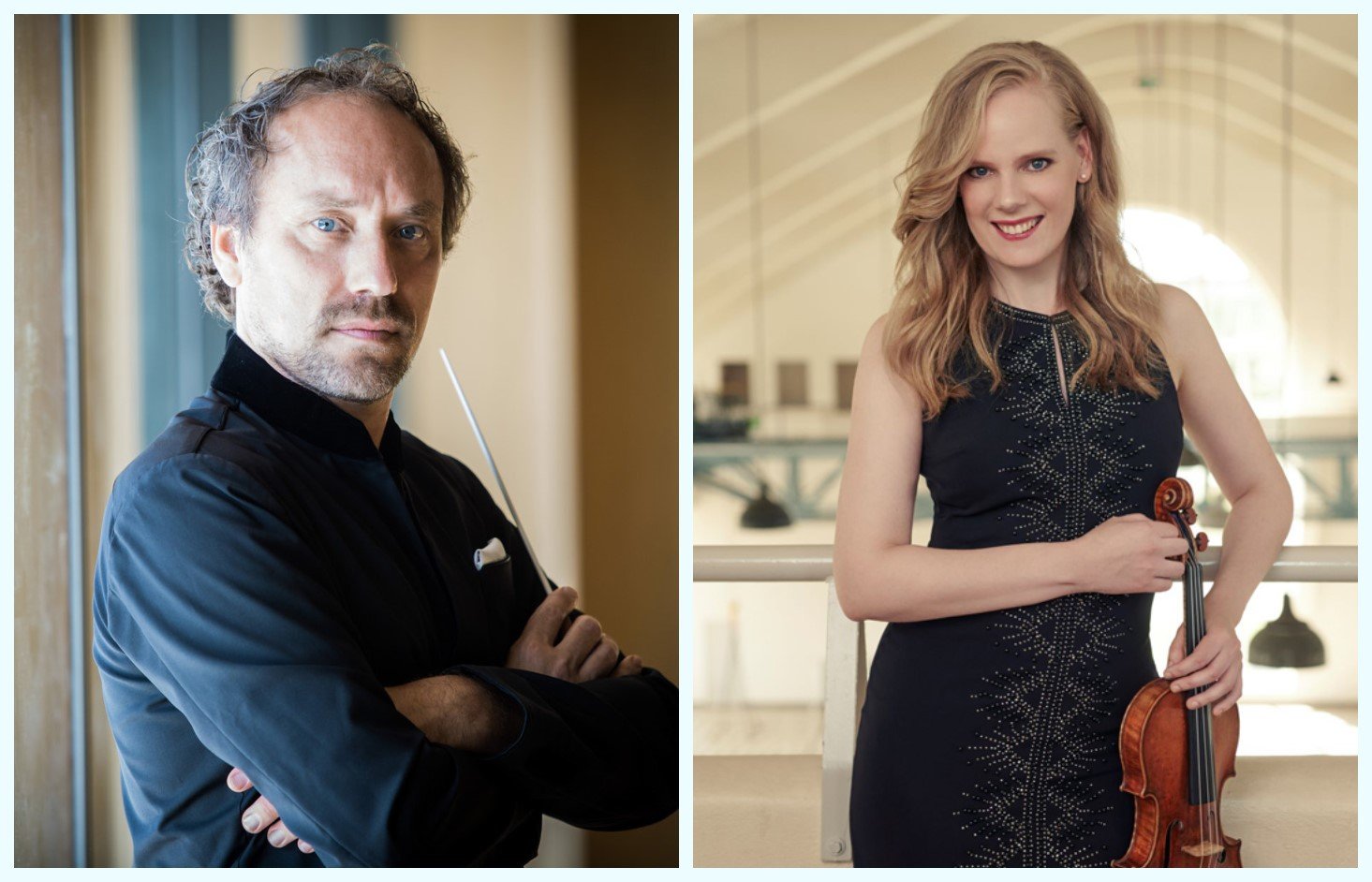At LA Phil, White-Hot Bruch and Brahms in Rain and Snow Week
/By Truman C. Wang
2/24/2023
With a major storm brewing outside and the National Weather Service texting flash flood alerts, the hall was emptier than normal on a Friday night, even the planned drinks event in the terrace was cancelled. Those who braved the wrath of nature and arrived early were rewarded with Christopher Russell’s excellent, insightful pre-concert talk, in which he delved into the musical minutiae of Brahms Third.
The concert started with a new work by Scottish composer Helen Grime - Meditations on Joy, three meditations to be exact, each corresponding to one of the three movements. The work shows fine skill in orchestration, particularly in the brass writing of the second ‘meditation’. However, with all due respect to the creator, there is no joy to be found anywhere in the work; if anything, its topsy-turvy cacophony perfectly mirrored the severe inclement weather outside. To add insult to injury, some musicians were seen covering their ears during an extended passage of loud dissonant mayhem.
There seems to be a pattern with today’s new music, that most of it spawns from the rarefied stratosphere of the creator’s mind or of the academia, far removed from everyday reality, and inscrutable to the average concertgoers, even the learned ones. It shall be interesting to see how many, if any, of these new compositions will have the longevity of Bruch and Brahms.
The popularity of Max Bruch’s Violin Concerto No. 1 is understandable, owing in no small part to its highly whistle-able third movement dance tune. Unfortunately for Bruch, it pretty much obliterated all his later works, spanning some fifty years (the First Concerto was written in 1866; Bruch died in 1920), which include two more violin concertos.
Of the performers of the First Concerto, I would divide them into two general camps: the calm poets (Morini, Perlman, Hahn, et al.) and the edgy potboilers (Gluzman, Zuckerman, Daniel Hope, et al.). Tonight’s Dutch violinist Simone Lamsma belongs in the second camp. She held her violin (the “Mlynarski” Stradivarius, 1718) the same way as the great Anne-Sophie Mutter: upon her bare shoulder, above her black-laced teal strapless gown. Lamsma is a highly physical and animated performer, and basically muscled her way through the first two movements; the phrases were choppy, the tone shrill at times. The negatives turned into positives in the third movement, allegro energico, which benefited from the exciting physicality of her playing. Yes, that memorable dance tune had many people whistling and humming on the way out.
The second half of the concert, Brahms Third Symphony, revealed Dutch conductor Otto Tausk (currently music director of the Vancouver Symphony) at his best, for it was a natural, emotional, and lyrical interpretation: voyages of discovery, loving traversals of a familiar, exciting work with a fresh eye and mind, in the company of the fine musicians of the LA Phil (several new additions in the wind section, the superlative brass playing, and the bilateral arrangement of the violins all added to the sonic splendor.) With Dudamel leaving L.A. in three years, many guest conductors such as Tausk will no doubt be putting their best foot forward, hoping to be considered viable candidates for the music director of one of world’s top orchestras.
Truman C. Wang is Editor-in-Chief of Classical Voice, whose articles have appeared in the Pasadena Star-News, San Gabriel Valley Tribune, other Southern California publications, as well as the Hawaiian Chinese Daily. He studied Integrative Biology and Music at U.C. Berkeley.

